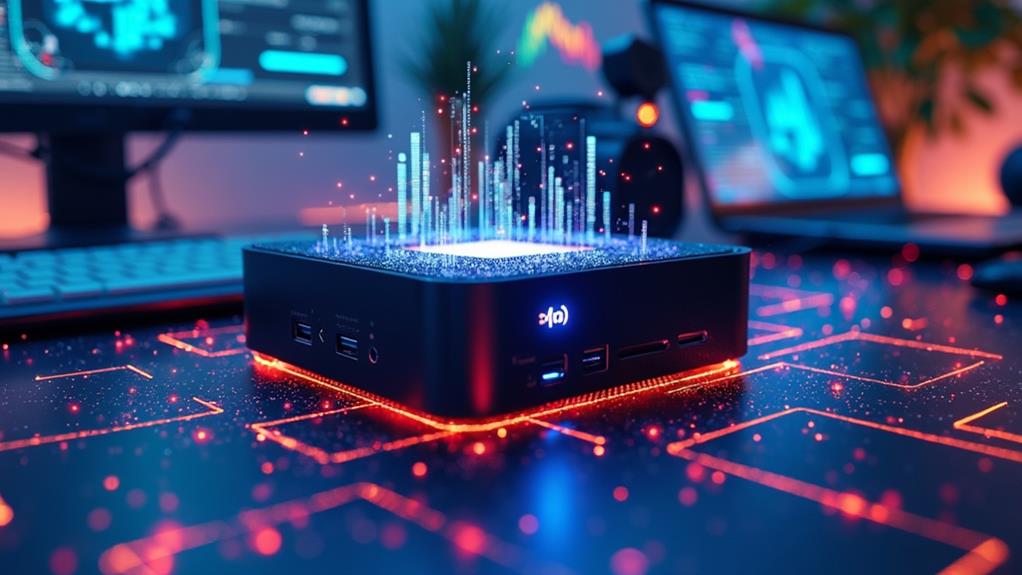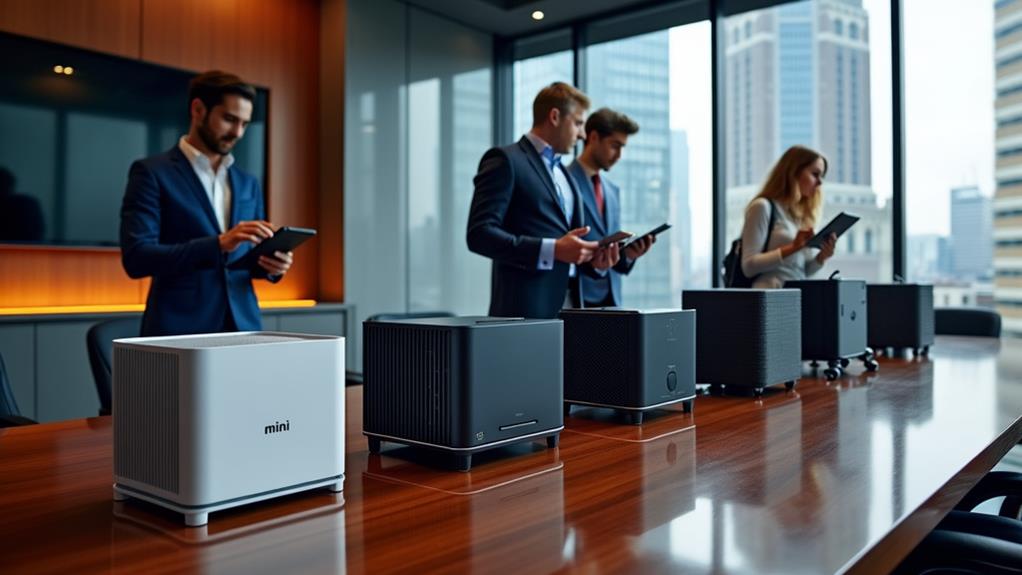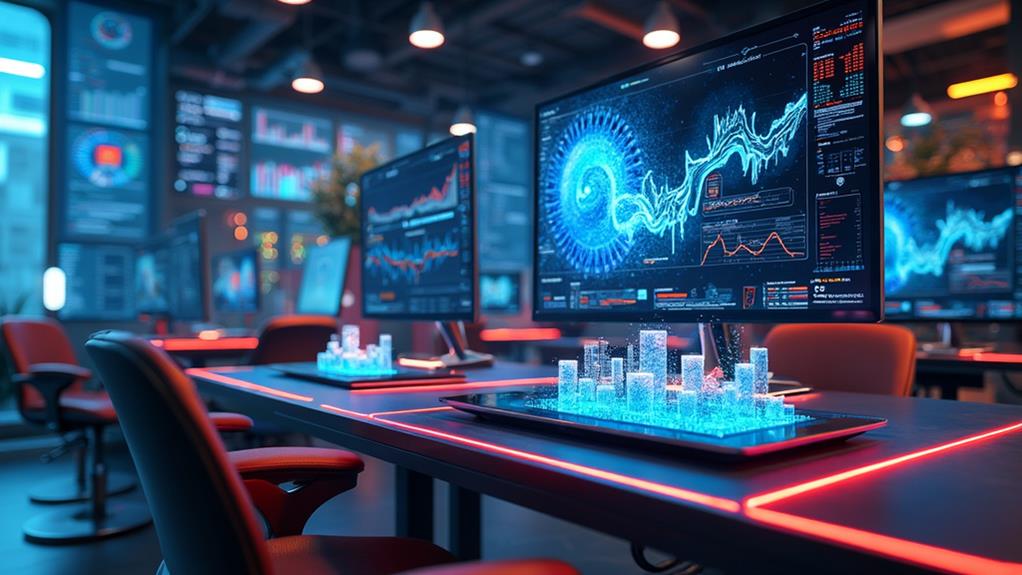



Have you ever wondered if mini PCs are more energy-efficient than their larger counterparts? Many people are curious about the power consumption of these compact devices and whether they can truly provide a greener computing solution. In this article, we will explore the energy-saving potential of mini PCs and shed light on whether they indeed use less power. So, let’s dive into the world of mini PCs and uncover the truth behind their energy efficiency!
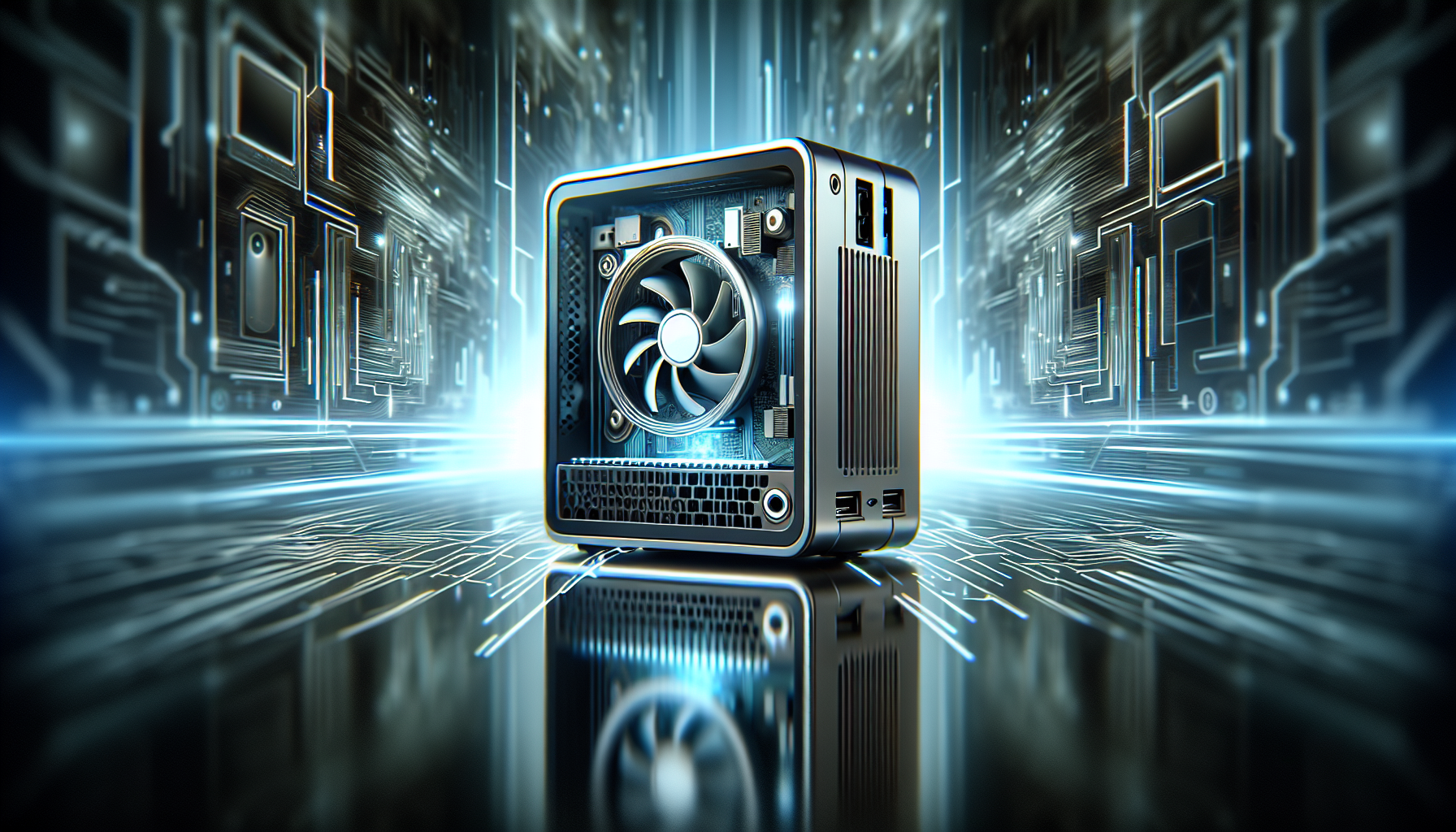
What are Mini PCs?
Mini PCs, also known as small form factor computers, are compact and lightweight computers that are designed to deliver both functionality and versatility in a small package. They are small enough to easily fit into tight spaces, yet still pack enough power and performance to handle everyday computing tasks. With their small size and low power consumption, mini PCs have become increasingly popular in recent years, especially among users who value energy efficiency and portability.
Power Consumption of Mini PCs
Factors Affecting Power Consumption
Several factors contribute to the power consumption of mini PCs. One of the key factors is the hardware components used in the system. Efficient and low-power components, such as processors and graphics cards, can significantly reduce power consumption. Additionally, the design and architecture of the mini PC also play a role in power efficiency, as a well-designed system can minimize energy wastage.
Another important factor is the workload or the tasks being performed by the mini PC. Running resource-intensive applications or performing complex operations can increase power consumption. On the other hand, lighter tasks such as word processing or web browsing consume significantly less power.
Comparison with Traditional Desktop PCs
When compared to traditional desktop PCs, mini PCs generally have a lower power consumption. This is primarily due to the mini PCs’ compact size, which necessitates the use of low-power components. Traditional desktop PCs often feature larger and more powerful components, resulting in higher power consumption.
Furthermore, mini PCs tend to use less power even when idle. They are designed to conserve energy and enter low-power states when not in use, ensuring minimal power wastage. This makes them more energy-efficient and environmentally friendly alternatives to traditional desktop PCs.
Comparison with Laptops
While laptops have long been regarded as portable computing devices with efficient power consumption, mini PCs can offer even lower power consumption in some scenarios. This is because mini PCs are specifically designed to prioritize power efficiency over portability. Laptops often have to strike a balance between performance and power consumption, whereas mini PCs can focus solely on optimizing power efficiency.
Additionally, mini PCs typically have more customization options when it comes to components. This means users can choose components that consume less power and tailor the system to their specific power needs. Laptops, on the other hand, often have fixed hardware configurations that may not be as power-efficient.
Advantages of Mini PCs in Terms of Power Efficiency
Energy Saving Features
Mini PCs often come equipped with energy-saving features that contribute to their overall power efficiency. These features include power management settings that allow users to adjust power consumption based on their needs. For example, users can configure the mini PC to enter sleep or hibernation modes after a specified period of inactivity, effectively reducing power consumption during idle periods.
Additionally, many mini PCs utilize smart power delivery systems that optimize power usage based on the demands of the system. This ensures that power is efficiently distributed to components that require it, while minimizing energy wastage. These energy-saving features not only reduce power consumption but also extend the lifespan of the components by reducing heat generation.
Optimized Hardware Components
Mini PCs are designed to use highly efficient and power-saving hardware components. Manufacturers carefully select components that offer the right balance between performance and power consumption. This includes low-power processors, energy-efficient graphics cards, and solid-state drives (SSDs) that consume less power than traditional hard disk drives (HDDs).
Furthermore, advancements in technology have enabled mini PCs to adopt ultra-low-voltage processors, which operate at lower power levels without sacrificing too much performance. These optimized hardware components ensure that mini PCs can deliver sufficient computing power while consuming minimal energy.
Limited Cooling Requirements
One advantage of mini PCs is that their small size allows for efficient cooling without the need for bulky and power-hungry cooling systems. Traditional desktop PCs often require elaborate cooling solutions, such as large fans or liquid cooling systems, to dissipate heat generated by high-power components. In contrast, mini PCs can make use of passive cooling techniques, leveraging their compact designs to efficiently dissipate heat through smaller heat sinks and vents.
The limited cooling requirements of mini PCs contribute to their lower power consumption. They can operate quietly and without the need for excessive energy consumption to maintain stable operating temperatures. This makes mini PCs an attractive option for those seeking a balance between power efficiency and a quiet computing experience.
Performance vs. Power Consumption Trade-off
Mini PCs with Low Power Processors
Some mini PCs are designed specifically to prioritize power efficiency over raw performance. These mini PCs often make use of low-power processors that consume minimal energy while still providing sufficient computing power for everyday tasks. These processors are typically part of the Intel Atom or Celeron families, known for their efficient power consumption.
While mini PCs with low-power processors may not be suitable for resource-intensive tasks or gaming, they excel in power efficiency. Their ability to handle lighter workloads with minimal power consumption makes them ideal for energy-conscious individuals or those looking for a secondary or specialized computing solution.
Mini PCs Designed for High Performance
Contrary to mini PCs with low-power processors, some mini PCs are designed to prioritize performance at the expense of power efficiency. These mini PCs often feature higher-end processors, such as Intel Core i5 or i7 processors, and dedicated graphics cards. While these mini PCs may consume more power than their energy-efficient counterparts, they offer significantly higher performance levels, making them suitable for demanding tasks such as gaming, video editing, or running resource-intensive software.
It is important to consider the trade-off between performance and power consumption when choosing a mini PC. Users should assess their specific needs and determine whether raw performance or energy efficiency is a higher priority for their use case.
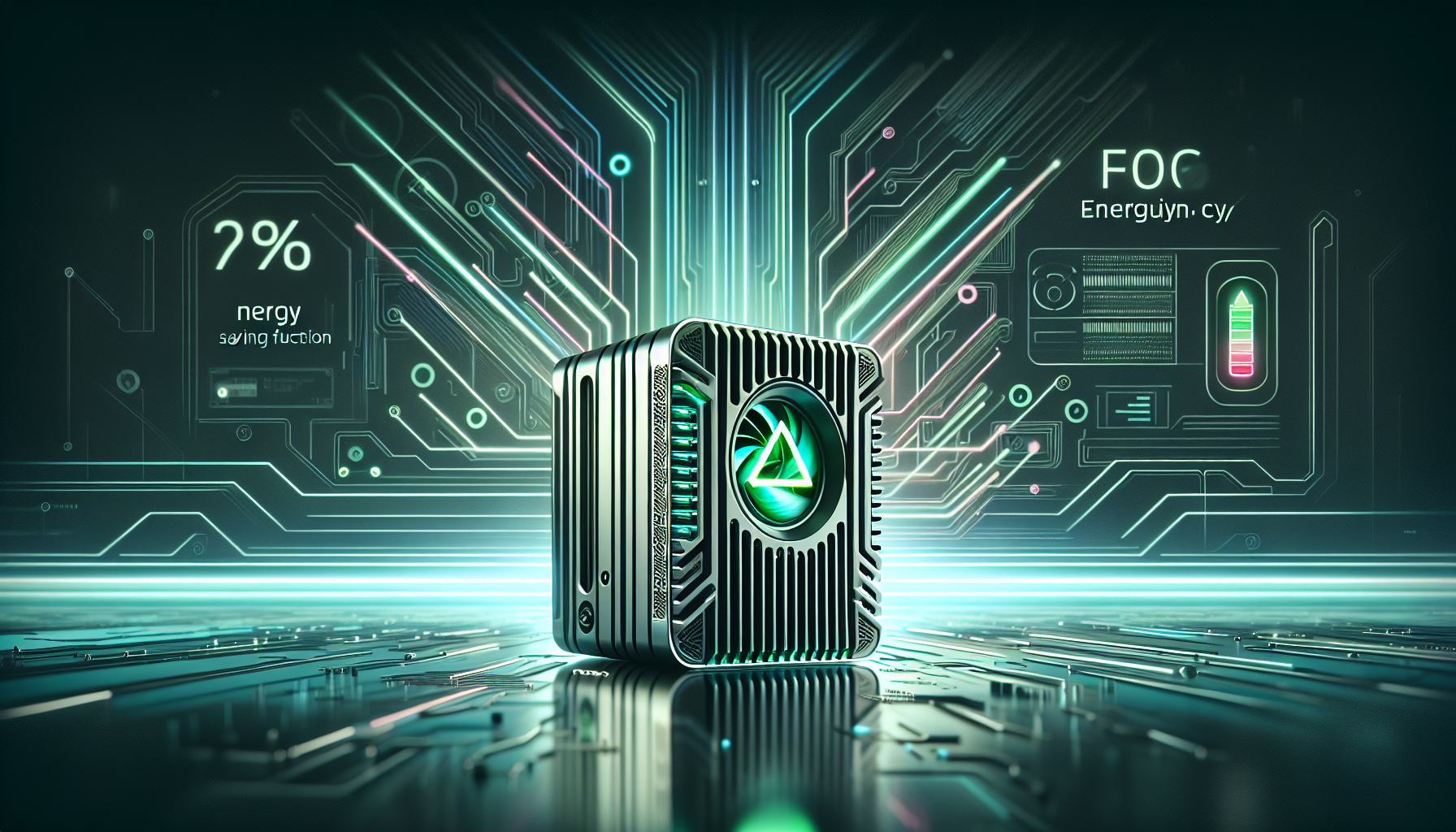
Mini PCs for Energy-conscious Individuals
For individuals who value energy efficiency and want to reduce their environmental impact, mini PCs offer an attractive solution. By consuming less power than traditional desktop PCs, mini PCs help to conserve energy and reduce electricity bills. They also contribute to a greener and more sustainable computing environment.
Mini PCs are especially beneficial for those who use their computers for basic tasks such as web browsing, document editing, or media streaming. These tasks can be accomplished efficiently with a mini PC, thanks to their optimized hardware components and energy-saving features. By investing in a mini PC, energy-conscious individuals can make a positive impact on their carbon footprint while still enjoying a reliable and capable computing experience.
Applications and Use Cases of Mini PCs
Homes and Offices
Mini PCs find wide applications in both homes and offices due to their compact size and versatility. They are well-suited for home entertainment setups, serving as media centers or streaming devices. The energy-efficient nature of mini PCs ensures that they consume minimal power when streaming content, making them an eco-friendly choice for entertainment purposes.
In office environments, mini PCs are commonly used for general office tasks, such as word processing, data entry, and web browsing. They provide a small footprint, saving valuable desk space, and their low power consumption makes them cost-effective for prolonged use. Mini PCs are also an excellent choice for small business owners or freelancers who require computing power in a limited space.
Education Sector
The education sector has embraced mini PCs as a cost-effective and energy-efficient computing solution. Mini PCs can be easily deployed in classrooms, computer labs, or libraries, providing students with access to computing resources without the energy demands of traditional desktop PCs. Their compact size also makes them highly portable, enabling flexible classroom arrangements and collaborative learning opportunities.
Furthermore, mini PCs are often used in educational institutions for digital signage, interactive displays, or multimedia presentations. Their low power consumption ensures that these devices can be operational for long periods without straining energy resources or becoming a safety hazard.
Embedded Systems
Mini PCs serve a vital role in the embedded systems industry, where small and energy-efficient computing solutions are essential. They are commonly used in digital signage, kiosks, vending machines, and other point-of-sale systems, providing a reliable and low-power computing platform.
The small form factor of mini PCs allows them to be integrated seamlessly into various devices and appliances, making them ideal for IoT (Internet of Things) applications. They can monitor, collect, and analyze data while consuming minimal power, contributing to the efficient operation of the connected devices.
Factors to Consider When Choosing a Mini PC
Power Efficiency Ratings
When choosing a mini PC, it is essential to consider its power efficiency rating. This rating provides an indication of how much power the mini PC consumes under various operating conditions. Opting for a mini PC with a higher power efficiency rating ensures lower energy consumption, resulting in long-term cost savings and reduced environmental impact.
Processor and Graphics Performance
The performance of the mini PC’s processor and graphics card should also be considered. While energy efficiency is important, it is equally crucial to ensure that the mini PC can handle the required tasks effectively. Balancing power efficiency with sufficient performance will result in an optimal computing experience.
Specialized Hardware Requirements
Certain use cases may require specialized hardware requirements. For example, if the mini PC is intended for gaming, a dedicated graphics card and a more powerful processor might be necessary. Alternatively, if the mini PC is intended for use as a media center, it may require specific audio or video output options. Evaluating these specialized hardware requirements and ensuring compatibility before purchasing a mini PC is crucial to meet specific needs.
Green Computing and Mini PCs
Environmental Impact
Green computing aims to minimize the environmental impact of computing technologies and practices. In this regard, mini PCs are a significant contributor to green computing. Their compact size and energy-efficient components reduce power consumption and limit electronic waste generation.
By choosing a mini PC over a traditional desktop PC, users can reduce their carbon footprint and help combat climate change. The lower power consumption of mini PCs means less electricity is required for operation, resulting in less reliance on fossil fuel-burning power plants. Additionally, the smaller size of mini PCs reduces the amount of electronic waste generated when the system becomes obsolete.
Role in Energy Conservation
Energy conservation is a critical aspect of green computing, and mini PCs play a vital role in this regard. The energy-saving features and optimized hardware components of mini PCs contribute to energy conservation by reducing power consumption. The use of low-power processors, intelligent power management settings, and efficient cooling systems ensures that energy is utilized responsibly.
Mini PCs are an excellent choice for those who wish to make a positive impact on the environment without compromising on computing performance. By promoting energy conservation, mini PCs contribute to a more sustainable future and help create a greener computing ecosystem.
Future Trends in Mini PC Power Consumption
Advancements in Processor Technology
The future of mini PC power consumption looks promising, with advancements in processor technology driving improved energy efficiency. Processor manufacturers are continually developing processors that offer higher performance with lower power consumption. These advancements ensure that mini PCs can deliver better computing power while consuming even less energy.
Advancements such as the integration of more cores, improved architectural designs, and refined manufacturing processes contribute to reducing power consumption. Future mini PCs will benefit from these technological advancements, providing users with more power-efficient computing options.
Reduced Power Components
As the demand for mini PCs continues to grow, manufacturers are investing in research and development to produce more power-efficient components. This includes the development of low-power graphics cards, storage options, and networking components specifically optimized for mini PCs.
Reduced power components ensure that mini PCs can maintain high levels of performance while keeping power consumption as low as possible. They are designed to maximize energy efficiency without sacrificing functionality or user experience. In the future, mini PCs will only become more power-efficient as these technologies continue to evolve.
Conclusion
Mini PCs are revolutionizing the computing landscape by offering compact, energy-efficient alternatives to traditional desktop PCs. Their small form factor and low power consumption make them attractive options for a range of users, including those who prioritize power efficiency, portability, and a reduced environmental impact.
With optimized hardware components, energy-saving features, and limited cooling requirements, mini PCs excel in power efficiency while still providing adequate performance for everyday computing tasks. Their applications span across homes, offices, educational institutions, and embedded systems, showcasing their versatility and adaptability.
When choosing a mini PC, factors such as power efficiency ratings, processor and graphics performance, and specialized hardware requirements should be considered. By selecting a mini PC that meets specific needs and balances power efficiency with performance, users can enjoy a computing experience that is tailored to their preferences while minimizing power consumption.
Green computing initiatives benefit from the lower power consumption of mini PCs, as they promote energy conservation and minimize environmental impact. Advancements in processor technology and the development of reduced power components further enhance the power efficiency of mini PCs, making them an exciting option for the future.
In conclusion, mini PCs are the go-to choice for energy-conscious individuals, providing a perfect blend of power efficiency, performance, and compactness. With their ever-improving power efficiency and versatile applications, mini PCs continue to pave the way for a greener, more sustainable computing landscape.
Disclosure: As an Amazon Associate, I earn from qualifying purchases.



